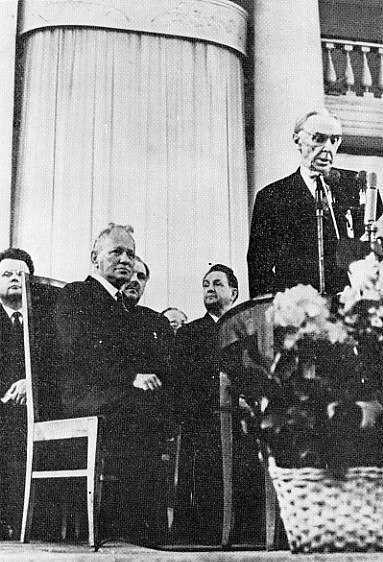presents:
ABOUT SHOLOKHOV
by
Konstantin Fedin
M.A. Sholokhov's 107th Birthday, 24 May 2012. |
presents:
ABOUT SHOLOKHOV
by
Konstantin Fedin
from 107 Years of Sholokhov, a SovLit.net celebration in honor of
M.A. Sholokhov's 107th Birthday, 24 May 2012.
 Sholokhov listens as K. Fedin addresses a jubilee celebration held in honor of Sholokhov's 60th birthday, 24 May 1965. |
|
107 Years of Sholokhov |
